CONECTAR
Nos pondremos en contacto con usted dentro de las 24 horas.
Para sus consultas urgentes, póngase en contacto con nosotros a través de whatsapp No: +86-18939970172

La Pasta y Polvo de Aluminio (APP) es un agente aireante clave para producir hormigón celular ligero. Reacciona con sustancias alcalinas para liberar hidrógeno, creando una estructura porosa que mejora el aislamiento térmico, la insonorización y la flexibilidad de la construcción. Es ideal para reducir el peso de los edificios y mejorar la resistencia a los terremotos.
La pasta y polvo de aluminio (APP) es un agente aireante crucial en la producción de bloques de hormigón celular. Reacciona con sustancias alcalinas para liberar gas hidrógeno, formando una estructura ligera y porosa. A continuación se exponen los aspectos clave:
En un entorno alcalino (por ejemplo, Ca(OH)₂), la Pasta y el Polvo de Aluminio reaccionan con el agua para producir gas hidrógeno:
2Al+3Ca(OH)2+6h2O→3CaO⋅Al2O3⋅6h2O+3h2↑
Esta reacción crea poros uniformemente distribuidos dentro de la lechada, reduciendo la densidad del producto final a 500-700 kg/m³ - sólo una quinta parte del hormigón convencional.
El tamaño y la distribución de los poros determinan directamente las propiedades aislantes e insonorizantes del hormigón celular. Para lograr una estructura de poros ideal, las partículas de aluminio deben tener una finura adecuada (≤3% de residuo en un tamiz de 0,075 mm) y un alto contenido de aluminio activo (≥85%).



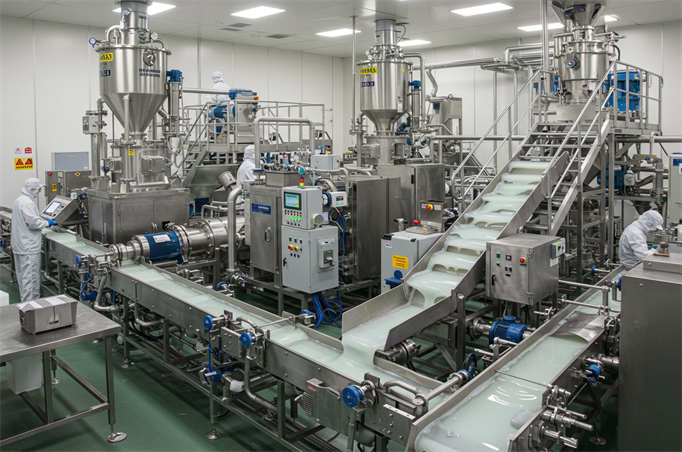
El proceso de producción de la pasta de aluminio aireada es crucial para determinar la calidad y el rendimiento del producto final. Este capítulo detalla el flujo de producción, las tecnologías clave y los puntos de control de cada etapa del proceso de fabricación de la pasta de aluminio aireada para ayudar a los lectores a comprender mejor la fabricación de este material crítico.
El flujo de producción de pasta de aluminio aireada (lodo)/polvo suele incluir los siguientes pasos principales:
Antes de iniciar la producción, la selección y preparación de las materias primas son cruciales. En principal Las materias primas incluyen polvo de aluminio, aditivos (como DEG, dispersantes, etc.) y otros ingredientes. La selección del polvo de aluminio suele basarse en el tamaño de sus partículas, su actividad y su pureza. El polvo de aluminio altamente activo puede generar más gas hidrógeno al reaccionar con el agua, logrando así mejores efectos de generación de gas. La selección de aditivos debe tener en cuenta su papel en la pasta de aluminio aireada, como la mejora de la fluidez y la mejora de la reactividad.
El polvo de aluminio preparado y los aditivos se mezclan en un cierta proporción. En este paso se suelen utilizar equipos de mezclado de alta eficacia para garantizar una distribución uniforme de los componentes y evitar la aglomeración. El tiempo y la velocidad de mezclado deben controlarse estrictamente durante el proceso de mezclado para garantizar una combinación suficiente de polvo de aluminio y aditivos, sentando una buena base para las reacciones posteriores.
Los materiales mezclados deben triturarse hasta alcanzar el tamaño de partícula especificado. Este paso es crucial para mejorar la actividad del polvo de aluminio. El uso de molinos de bolas u otros tipos de equipos de molienda puede reducir eficazmente el tamaño de las partículas y aumentar la superficie del polvo de aluminio, mejorando así su reactividad con el agua. Tras la molienda, los materiales también deben clasificarse para garantizar la consistencia del tamaño de las partículas y la distribución del producto.
En este paso, el polvo de aluminio molido se mezcla con agua y otros aditivos necesarios para formar la pasta de aluminio. Las condiciones de reacción en este momento (como la temperatura y la velocidad de agitación) deben controlarse para garantizar que la reacción entre el polvo de aluminio y el agua sea suficiente para generar una estructura de burbujas estable. Se puede obtener un mejor efecto de generación de gas y fluidez mediante una proporción y agitación razonables.
La pasta de aluminio aireada preparada (lodo) debe prestar atención a las condiciones ambientales durante el almacenamiento y el transporte, evitando las altas temperaturas y la humedad para prevenir la reacción prematura y el fracaso. Sus propiedades físicas y químicas deben comprobarse regularmente durante el almacenamiento para garantizar la calidad estable del producto. Por último, la pasta de aluminio debe envasarse de acuerdo con las normas para garantizar que no se produzcan fugas ni deterioros durante el transporte.
En el proceso de producción de pasta de aluminio aireada (lodo)/polvo, varias tecnologías clave tienen un profundo impacto en el rendimiento y la calidad del producto final:
La molienda de bolas es un importante tecnología para la molienda de polvo de aluminio. El proceso de molienda física puede reducir eficazmente el tamaño de las partículas del polvo de aluminio y aumentar su superficie específica. El menor tamaño de las partículas ayuda a mejorar la reactividad del polvo de aluminio, lo que le permite generar gas hidrógeno más rápidamente al reaccionar con el agua, formando así una estructura de burbujas uniforme y estable.
La tecnología de clasificación juega un importante papel a la hora de garantizar la consistencia de la distribución granulométrica del polvo de aluminio. A través de la clasificación, los polvos de aluminio de diferentes tamaños de partícula pueden separarse, mejorando la actividad y la adaptabilidad del material. Una distribución adecuada del tamaño de las partículas puede optimizar la formación de burbujas y mejorar la resistencia y el aislamiento térmico del hormigón celular.
En el proceso de preparación de la pasta de aluminio, es crucial controlar las condiciones de reacción (como la temperatura y el tiempo). Unas condiciones de reacción razonables pueden garantizar que la reacción entre el polvo de aluminio y el agua sea suficiente para generar un número adecuado de burbujas distribuidas uniformemente. La aplicación de la tecnología de control de la reacción ayuda a mejorar la estabilidad y consistencia del producto.
El rendimiento del producto puede mejorarse optimizando continuamente la formulación de la pasta de aluminio. Por ejemplo, la adición de cantidades apropiadas de ciertos aditivos puede aumentar la velocidad de reacción del polvo de aluminio y mejorar la fluidez y estabilidad de la pasta de aluminio. Además, para diferentes necesidades de aplicación, las empresas pueden desarrollar varios tipos de pasta de aluminio para satisfacer las diversas necesidades del mercado.
En la producción, el control de las condiciones ambientales (como la temperatura y la humedad) también es crucial para garantizar la calidad del producto. Especialmente en las etapas de almacenamiento y transporte, es necesario proporcionar condiciones ambientales adecuadas para evitar que la pasta de aluminio falle o se deteriore debido a los cambios ambientales.
El control de calidad es un importante a lo largo de todo el proceso de producción para garantizar el rendimiento estable de la pasta de aluminio aireada (lodo)/polvo. Las empresas suelen establecer un sistema completo de gestión de la calidad, incluyendo:
Antes de empezar la producción, todas las materias primas deben someterse a una estricta inspección de calidad para garantizar que cumplen las normas de producción. Es necesario comprobar la actividad, pureza y distribución granulométrica del polvo de aluminio para determinar si cumple los requisitos de producción.
Durante el proceso de producción, los parámetros de cada etapa (como la temperatura, la humedad, el tiempo de mezcla, etc.) se supervisan en tiempo real para garantizar que el proceso de producción esté siempre en el mejor estado. Además, los equipos de pruebas en línea pueden detectar y ajustar los problemas a tiempo para evitar la generación de productos no cualificados.
Una vez fabricado el producto, es necesario someterlo a pruebas exhaustivas de rendimiento, que incluyen indicadores como la fluidez, la generación de gas y la resistencia a la compresión, para garantizar que cumple las normas pertinentes y las necesidades del cliente. Sólo los productos que han superado las estrictas pruebas pueden ponerse a la venta en el mercado.
| Característica | Pasta de aluminio (al agua) | Polvo de aluminio seco |
|---|---|---|
| Proceso de producción | Rectificado en húmedo, sin necesidad de desengrasar | Rectificado en seco, requiere desengrasado |
| Seguridad | Sin riesgo de explosión de polvo | Inflamable y explosivo, requiere protección de nitrógeno |
| Facilidad de uso | Añadido directamente al lodo, buena dispersión | Requiere tratamiento de desengrase previo |
| Impacto medioambiental | Baja contaminación, fácil tratamiento de las aguas residuales | Alto consumo de energía, más contaminación |
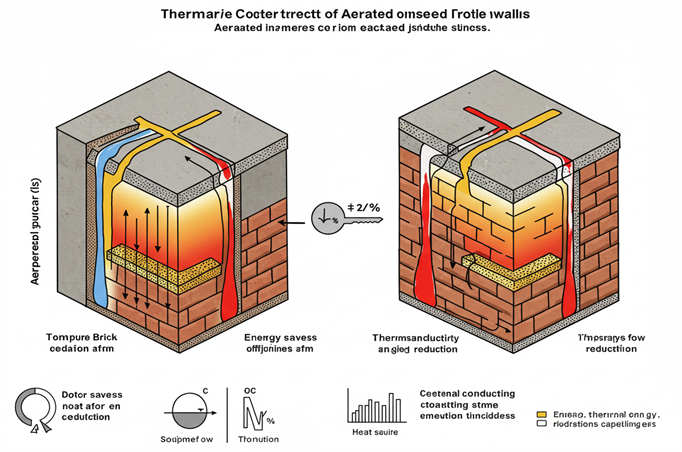
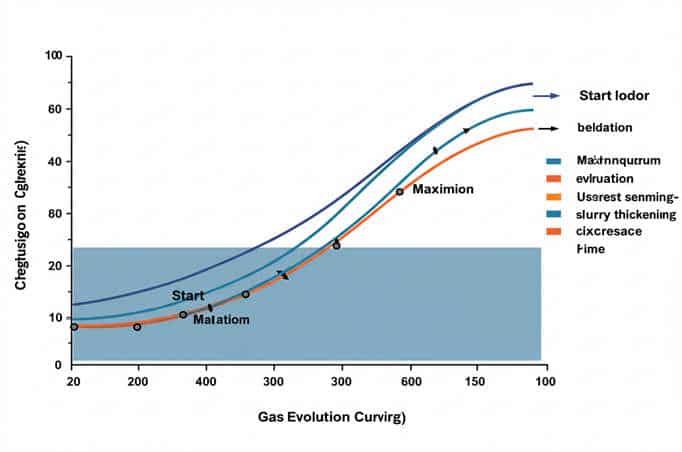




A continuación se exponen los principales métodos de ensayo y requisitos técnicos basados en las normas del sector y las aplicaciones prácticas:

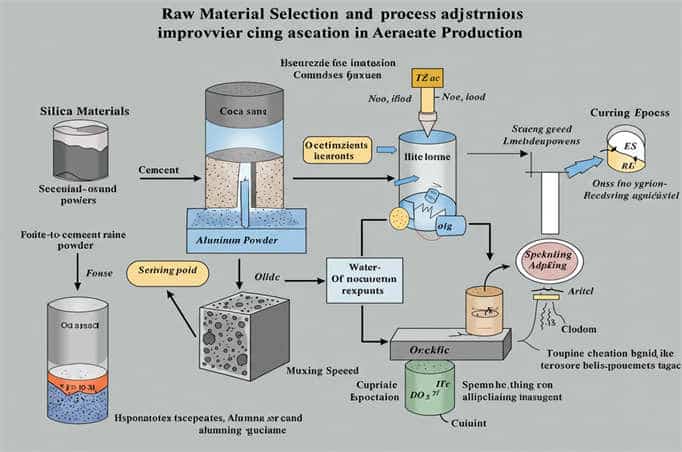
La pasta y el polvo de aluminio deben airearse a un ritmo acorde con el espesamiento de los purines:
Mantener la temperatura de los purines entre 40 y 60°C. Un calor excesivo acelera la aireación, con el consiguiente riesgo de expansión incontrolada, mientras que las bajas temperaturas ralentizan la aireación, lo que provoca una distribución irregular de los poros.
Fiver Star New Materials garantiza una calidad óptima del hormigón, mejorando la eficiencia térmica, la resistencia mecánica y la adaptabilidad a la construcción. ajustando los parámetros de aireación.
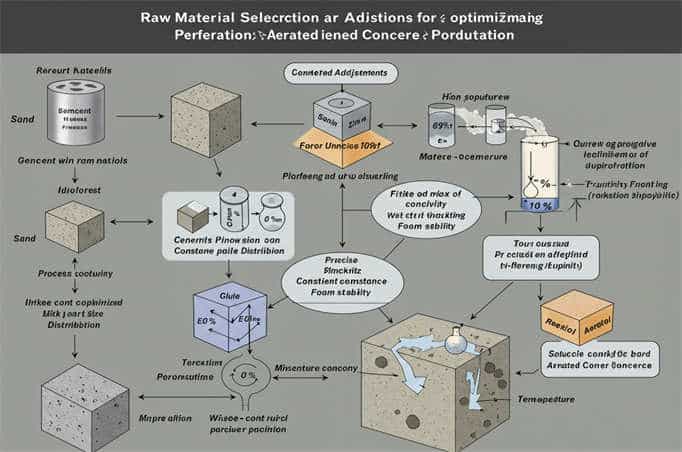

| Nombre del producto | Contenido sólido (%) | Alúmina activa (%) | Densidad aparente | Tamaño medio de las partículas (D₅₀) | Adecuado para CAA |
|---|---|---|---|---|---|
| DEG-60 | 70% | ≥96 | 0.15 | 58-62 | <600 |
| DEG-40 | 70% | ≥94 | 0.15 | 36-42 | <500 |
| DEG-35 | 70% | ≥94 | 0.15 | 33-35 | <400 |
| DEG-25 | 70% | ≥94 | 0.15 | 25-27 | <400 |
| DEG-18 | 70% | ≥92 | 0.11 | 17-19 | <350 |
Le sugerimos que se comunique con nosotros plenamente antes de comprar, sin duda consideraremos todos los aspectos y le ofreceremos un plan de precios justo y razonable. Al elegirnos, obtendrá el mejor producto y la mejor relación calidad-precio.
Elegir el tamaño adecuado del producto le ofrece la mejor relación calidad-precio. Nuestra pasta de plata de aluminio Metal Flash está disponible en una amplia gama de tamaños de partícula y purezas, con precios que varían según la especificación. Comunicando detalladamente sus necesidades y eligiendo el tamaño adecuado, puede obtener la mejor relación calidad-precio.
Cuanto mayor sea la cantidad comprada, menor será el precio unitario. Los pedidos al por mayor nos permiten compartir mejor nuestros costes de producción y funcionamiento, por lo que nos complace ofrecer precios con descuento por compras al por mayor.
El momento y la forma de pago que elija también afectarán al precio. Por ejemplo, pagar todo por adelantado puede resultar en un precio más favorable, ya que reduce nuestro coste de capital. Consulte con nuestro equipo de ventas la opción de pago que más le convenga.
El transporte y la logística también son factores que afectan al coste total de propiedad. Los costes de envío varían según el modo de transporte y el destino. También hay que tener en cuenta los aranceles, los seguros y otros gastos. Si calcula estos factores antes de la compra, podrá estimar con más precisión el coste total.
En Five Star Materials, nuestra pasta y polvo de aluminio para AAC se produce mediante un proceso delicado y riguroso. A continuación se muestra nuestro proceso de producción básico:
Compramos materias primas de gran pureza a proveedores de confianza para garantizar la calidad de nuestros productos desde el origen.
La materia prima se tritura para convertir los bloques de aluminio en partículas diminutas para su posterior procesamiento.
El polvo de aluminio triturado se mezcla con nuestros disolventes y aditivos especialmente formulados y, a continuación, se mezcla mediante un proceso de mezclado a alta velocidad. Este paso es muy importante, ya que determina la estabilidad de la pasta de aluminio y la forma de las partículas.
Tras la molienda, la pasta de aluminio pasa por un sistema de filtración para eliminar posibles impurezas. A continuación, nuestro equipo de control de calidad realizará una serie de pruebas sobre el producto, como el tamaño de las partículas, el brillo, el tacto metálico, etc., para confirmar que el producto cumple nuestros elevados estándares de calidad.
Los productos que han superado rigurosas pruebas se envasan cuidadosamente y se almacenan en nuestros almacenes, listos para su envío a nuestros clientes.
Tenga en cuenta que este es un proceso de producción básico y que el proceso exacto puede variar en función de los requisitos específicos del producto. En Five Star Materials nos tomamos muy en serio el control de calidad y nos aseguramos de que nuestros productos cumplan nuestras estrictas normas de calidad en cada paso del proceso de producción.


En Five Star Material, entendemos que cada proyecto es único, y nuestro objetivo es proporcionar las mejores soluciones personalizadas para cada cliente.
Nos pondremos en contacto con usted dentro de las 24 horas.
Para sus consultas urgentes, póngase en contacto con nosotros a través de whatsapp No: +86-18939970172

